If you love theater, you love Shakina Nayfack, even if you don't realize it yet. Exactly a year ago last Sunday, Shakina, with the assistance of a dedicated team of creative artists, opened up the Musical Theater Factory in the heart of Manhattan's theater district, just steps away from Broadway's most celebrated theaters. Almost immediately it came to life, serving as a home base for all sorts of musical theater artists to write, perform, develop, and experiment in a supportive environment. It's a one-of-a-kind organization and a dream come true for any musical theater writer hoping to develop a project.
(photo credit Susan Rosenberg Jones)
But it's not just the Factory that's incredible, it's Shakina herself. Shakina is a transgender performance artist whose powerful honesty in both her performances and every day life has made her a prominent figure and role model in the theater scene. She certainly has her own successful projects and plenty of new work on the way, but she still spends the majority of her time nurturing others and encouraging creativity in a way that's rare and deeply respected. We got to sit down with Shakina and chat all about the major significance of her recent Lilly Award win, why the Musical Theater Factory is one of the most integral centers for theater development in the nation, and the uninhibited honesty that makes her one of the community's most gripping performance artists and leaders.
Congratulations on your recent Lilly Award win! Can you tell us more about the Lilly Awards and what they stand for?
Well, six years ago the Lilly Awards were birthed by Marsha Norman, Julia Jordan, and Theresa Rebeck, who all recognized a dearth of representation of women writers, directors, producers and performers. The Lilly Awards started ‘The Count,’ where they all actually went to every producing theater in the country and published a record of how many works by women they were producing in their season. It was a real call to action for gender parity. The Lilly Awards are different from all the other awards of the season 1) because they are specifically focused on gender parity and honoring and recognizing the work of women, and 2) because it is not a competitive award. There are no people up for certain categories and then one wins. There are awards given in certain categories every year - writing, performance, directing, producing - and they also make up a couple awards too. It’s a very flowy, feminist, fun but pointed celebration. It’s kind of an informal ceremony, everyone’s having a good time - I mean, I was a nervous wreck - but it’s really fun. I wept through the whole thing because it just felt magical to be in that room with all these incredible women.
What is the major significance of your particular win?
I think what’s so special about my being recognized with a Lilly Award this year is 1) that I’m the first transgender woman to receive this award and be recognized as a woman making a contribution to the American theater. Which is a huge honor for me personally, and also glass-ceiling-shattering for transwoman in the American theater and for trans representation in feminism as we’re understanding it. It’s also really special because the award I was given was the first Lilly Award for “Working Miracles" - they made up the category. That’s really significant for me because as an artist I’ve often struggled with what hat to wear and what foot to put forward when I’m representing myself, whether I am an actor, a writer, a producer, a dancer, an artistic director. This award was given to me for not making a choice, but for being all those things, which is really cool and special as an emergent artist who’s trying to do things in a renaissance fashion.
Then, in particular, I think it was given in recognition of my transition, which has been a really public and performative thing that I did for a purpose; to educate my community, empower others, and demystify my process for the people who I work with. And then the Musical Theater Factory, which is this incredible thing that exploded from an idea into a massive organization in a really short amount of time. So those two achievements in the past calendar year were being recognized in that “Working Miracles” kind of thing.
The third thing about it that I think is so cool is the tagline of Musical Theater Factory is “We’re working on it,” and so much of what I talk about in MTF from the beginning was the recognizing artists as laborers and approaching our work with a Marxist kind of point of view. The Musical Theater Factory is completely artist operated and completely artist supported. In so doing, we create an environment where we can ensure that we’re being treated respectfully, that we’re treating others respectfully. That our work is being honored, that our work is protected. That we’re giving each other opportunities. So what I guess I like about it in sort of a secret linguistic way is that idea of 'working' came into the title of the award, and it’s not like, “These things happen!” It requires a massive amount of labor and that labor should be recognized.
Photo credit Felisa Ihly
The Musical Theater Factory just celebrated this awesome one year anniversary! How did the idea of MTF become the reality that is now?
It started years ago when I was driving around downtown LA, and there were all these abandoned warehouse buildings. There’s this giant Sears building, I would look at it and I would imagine, 'What if that building was full of rehearsal studios and theaters, and it was like a tin pan alley for the musical theater development process?' So flash forward to a year and a half ago, I’m in New York beginning my transition and also invested in developing a few new musicals of my own. And I really don’t want to be known as a producer. I’m all the other things, and I do produce because I need to get shit done, but I wanted to distance myself from putting my name out into the world as a producer. So I created Musical Theater Factory as, like, a brand identity. On one hand it was ‘MTF,’ which was the process I was going through, which I felt was a clever way to synthesize both of these massive undertakings. And again because it got to this idea of ‘factory’ and ‘manufacturing,’ you know, the labor of making musicals. When I announced to my friends that I was starting this brand, I invited them to participate. I was already developing The Disappearing Man with a friend, Jahn Sood, so we did it as a Musical Theater Factory production. We did One Woman Show as a MTF Production, did a couple concerts.
Then in the spring of last year, my friend who runs this porn studio had been downsizing his company and he was like, “You know, I just feel like I want to give you a key and tell you you can do whatever you want in the back.” And I said, “If you’re serious, we will do this.” We made a plan, and I emailed a group of maybe 30 or 40 mostly writers, some performers, some technicians and designers and said, “I think I’m going to build a blackbox theater in the back of a porn studio in midtown. Who’s down?” And people started coming to these work parties. People would come in and just, like, help move the porn inventory, lay down a new floor, repaint the walls. And then once we got the room started, we would have these meetings called “Community Brainstorms” about the programming goals. I asked a bunch of writers to come in and meet and talk about what kind of stuff we could do here that would be helpful for them. These were, like, all my friends who I think are ridiculously talented and I wanted to support them. Then I also asked a bunch of actors who I love who I've worked with a bunch, “How can we make this fair to you and interesting to you?”
We knew because we had no money that it will all be volunteer-based, and the focus would be just trying to keep it open. We made enough money through donations through ticket sales in the first six months to pay back the landlord, and then we started paying our utilities. Now we’re paying 50% of the rent. The goal is to become financially sustainable so we can pay 100% of the rent, then eventually start paying staff salaries and artist stipends. That’s the long term goal, to be able to offer some kind of compensation to everyone who actually puts in work here.
I’d love to talk more about you and your projects. As anyone who follows you on social media can see, you’re very honest about every step of your transition and everything happening in your life in a very emotional and personal way. What went into the decision to be so open and so public?
I think that maybe first and foremost I’m a performance artist. That has been a part of my understanding of myself from a very young age as an activist that I could use my experience to educate and create change, simply by living in a certain way. For example, when I was younger I used to say, “I have to challenge my body image issues so other people will challenge theirs.” And I would do these performances where I was very - well, I’ve been naked on stage - and I’ve been like, “I’m doing this, it scares the shit out of me, but then we’ll get over what this is.”
So when I first moved to New York and all I wanted was to be a part of this theater community, and I was terrified to transition. I’d been out as trans already before in a different way and kind of went back in the closet a bit, not in my heart or in the way I talked about my gender, but in terms of my presentation. I was sort waiting for the right moment, I wanted to make sure that I was being taken seriously as an artist and that I wasn’t getting preferential treatment or the opposite of that because of my gender presentation. So when I felt like I’d met enough people and I’d gained the trust of colleagues and friends, I kind of hit a wall with my own lack of self-fulfillment in terms of gender identity where I said, ‘I need to do this or I’m not going to be able to be happy ever in my life.”
It started when I was leaving a laser hair removal session - which is ridiculously painful and very expensive - and I knew I had a ton more of them to do, as well as everything else that was down the pipeline, and I just tweeted as a joke “I should really crowdfund my sex change.” And then I realized that was fucking brilliant. 1) It’s practical, you know? I don’t have any money and I need to do this thing that I knew costs thousands and thousands of dollars. 2) I’d helped so many friends make their films, make their album, produce their show by giving $5, $10, $15 bucks.
So I made the decision to crowdfund my surgery, which I knew would be putting it out there in a big way. And I also made the decision to create a show about my experience. My only intention for that show originally was to let the people in my community know where I was coming from. I knew there would be a lot of questions and I knew my changes would be visible, and I just wanted to clear the air and get it out there. So I created this autobiographical piece that I called One Woman Show that was about my life leading up to the point of my gender transition.
Photo credit Michael Kushner, poster designed by Michelle Dimuzio
I invited some friends that were all really gifted composers to collaborate with me and create original songs for the show. I ended up premiering it at Joe’s Pub on my birthday which was a huge thing, and then at 54 Below, Sophie’s, Theatreworks, Barrington Stage, and it toured. It was sort of a vehicle for “KickStarHer” which was the brand of my fundraising campaign, and it was also a vehicle for me to just tell people where I was coming from. I actually say in the beginning of the show that my gender transition was a dream deferred, and when I started taking the steps to actualize this dream, this other dream came up a’knocking and was like, ‘what about me?' And that was the dream to be onstage performing. I figured why realize one dream when basically for the same price you can realize two?
One of the things too about gender transition - at least for me, the way I acknowledge it spiritually - was that my whole self was up on the alter to be reconfigured. So it wasn’t that I was, like, going to Thailand to cut off my penis, it was that I was taking a radical step to surrender everything I knew about my body and myself to become more actualized into the person and purpose that I ought to be, that I was here to be, and that I gave full permission to God to realign whatever else ought to be realigned in that process. And the fact that I suddenly have a performance career after thinking that that was just over is one of the greatest gifts that has come out of the transition. Aside from the obvious gifts.
And you have another show, Post-Op, that we’ll be able to see a little bit of in the future.
Yeah, so I’m working on it now - ‘We’re working on it,’ at the Factory - again, I’m collaborating with a bunch of really wonderful, mostly women, composers this time. It is the story of my pilgrimage to Thailand to undertake gender reassignment surgery through my recovery and re-entry to New York as a woman, and also layered throughout that a kind of spiritual autobiography that talks about how faith in all of its different manifestations has factored into my gender process. I’m really hopeful that this show will premiere on September 22nd, which is the one year anniversary of my surgery, I don't know yet where that show will be, but yeah, I’m working on it!
Now in your social media you use the #TransFeminism quite often. What are some of the differences and similarities between transfeminism and feminism?
I think as feminism has grown as a movement and a system of political theory through the past 60 years, it has succeeded in building relationships with other social movements and finding ways to articulate strategies for dismantling the imperialist capitalist white supremacist patriarchy. Right? So what maybe originally started out as being like, we’re looking at women’s lives at the center of this equation, moving from the margins to the center to talk about women and girls and femininity and feminism and all the ways that gender has been at the bottom of this binary hierarchy throughout time, and then subverting that. That was the original project. And then people were like, well, we can’t talk about gender without also talking about sexuality. Well, we can’t really talk about gender and sexuality without race and class and that’s really what's wonderful about second-wave feminism and radical feminism - they opened up that equation.
Where I think transfeminism comes in - and this is just from me personally, I’m not speaking for a movement or a class of people, but from my transfeminism practice - I think what a transgender experience offers is a point of illumination around crossing one of the most unimaginable borders. Like, the gender binary. The great divide. The source of division in our worldview. Transcending, transgressing that border is a radical act, is a sacred act. I think it teaches us a lot about the politics and the poetics of border crossing in general. To me, that encourages me to look at other types of border crossings. I think transfeminism needs to cross over social movements. I think transfeminism needs to be transhistorical, it needs to look back in time as well as forward to the future. I think that transfeminism needs to be transborder and collaborate with post-colonial studies and Chicano/Chicana theory and really unpack all the ways that we create imaginary but also very material lines in the sand, like I said in my Lilly Awards speech, that create a dynamic of privilege and oppression.
Recently, you had an experience where a transphobic comment was made at a gala held at another NYC theater. Can you walk us through how that ended up working out?
Sure. I was at a gala at another nonprofit theater company that has done a lot of great work to promote inclusion in our community. One of the co-hosts of that gala made an off-the-cuff remark about Caitlyn Jenner - Bruce, at the time. The joke didn’t land, but I was of course really enraged and made very uncomfortable. I couldn’t just sit there, so I stood up and left.
I got home and thought, 'You know, I’m at least going to take a picture because this outfit’s great!' I posted it on Instagram, and I called out the company at the time for irresponsibly including a transphobic joke in their patter. What I didn’t know at the time was that this host had ad-libbed the comment on top. So I posted this thing, it created a kind of uproar, and soon after the organizers of the event commented on this thread - it was all on social media - that they were sorry that it happened, but it was an ad-libbed thing, it was out of their control. We had a back and forth about trans inclusion in talking about women making theater. Then the person who made the comment reached out to me personally and was incredibly contrite and apologetic and explained where they were coming from and asked if we could meet in person. We did and we both cried, and he talked about being a man of color, never wanting to subjugate another marginalized person, and how he personally felt that he wanted to be an advocate for trans people and just this was really a fluke thing.
Then the theater issued a statement on social media again saying that this thing happened, and it was unintentional. They recognized that it was inappropriate, but they wanted to articulate their position of standing in support of trans people and promoting inclusion. I then shared that statement publicly and made my own. I wanted to take ownership of my anger, because I felt like it was valid, but I also felt like the way that I expressed it was snarky and hurtful to these women who had gone through a lot of work to create an amazing event celebrating women and sisterhood and solidarity. I think the way I was made to feel at the event I then made them feel about their event, and that’s not ultimately my goal as a feminist, as a woman, and as an artist.
Ultimately, I think everyone who was witness to the way that unfolded was sort of like, ‘Wow, what an incredible example of learning how to be an ally and learning how to work through a difficult situation instead of ignore it or write it off.’ For something like that to happen and then be, in some ways, resolved or at least opened up into a teachable moment in such a short amount of time really sends an awesome message not only about the care with which this other company tried to handle the situation, but really the way we as theater people ultimately want to be the best people we can be, and we care about that. We care about each other.
Something I do want to establish is that Musical Theater Factory is not a normal thing that happens in New York. It can be extremely hard to get new work developed, and it can be a frightening and cold environment. What MTF does which I think is entirely unique is create a very warm, fun, supportive, and inspirational environment that I think is almost unmatched. It’s become a clubhouse more or less for not only new and young artists, but artist who are established and widely successful to come and develop all on the same equal ground. Even people who just enjoy theater casually should look into getting involved, because at MTF the shows that they'll one day love are being born. What are some of the best ways people can support MTF?
Thank you! One of the things I care most about is that experience of the clubhouse, sandbox, and level playing field. That we have Tony Award-winning Broadway talent and we have people who are still in school working together and supporting each other on their projects. I think that’s really special, and you’re right, it is unmatched. That’s not to say that what we’re doing can’t be done elsewhere!
So in terms of ways to support the Factory, we, at this point, are still month-to-month. We know we’re having a summer season, but we don’t know what’s happening beyond that. We are nearly 50% of the way on our Capital Campaign which has a goal to raise $150,000 dollars, and we have to hit that goal by the end of the summer. There’s small but meaningful ways to support as a sponsor of Musical Theater Factory. We have a sponsorship program (that you can check out here), and it’s a way to sponsor MTF with a monthly donation that’s tax-deductible. There’s anywhere from $5 a month to $100 a month or more, depending on what your income level is and desire to support. This goes to covering our operational costs. My goal is to see at least 10% of our operating budget covered just by our sponsorship program, which would be very awesome.
Then we are also looking for corporate sponsors and angel donors (learn more about donating at this link). One of the things we want to create is a staff endowment so that we can ensure that the people working full-time hours for us eventually start to get salaries. I’m unpaid, the managing director’s unpaid. Everyone you ever see in the office here is unpaid at this point. But as we continue to grow it’s becoming already really difficult to manage people’s other lives and jobs with what this organization necessitates. So if people are interested in getting more involved, they should just contact me!
To keep up with Shakina, you can visit her website and follow her on Twitter, Instagram, and Facebook!
For more information on the Musical Theater Factory visit mtf.nyc and like the MTF Facebook page!
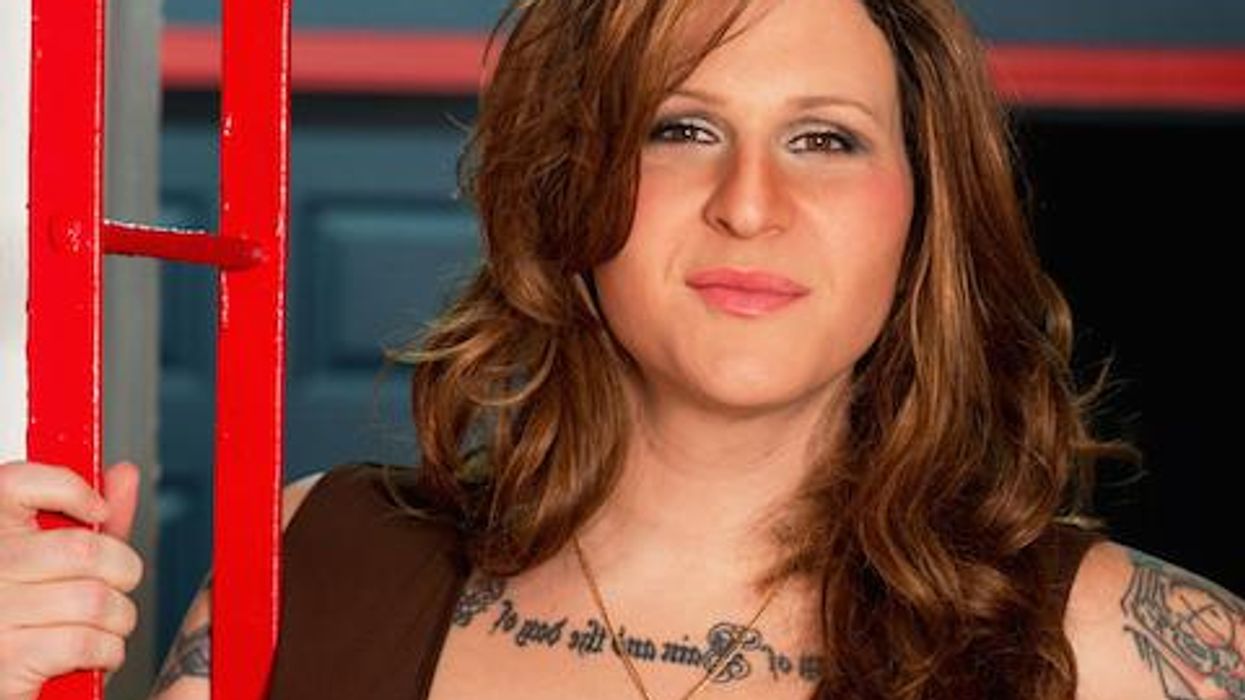

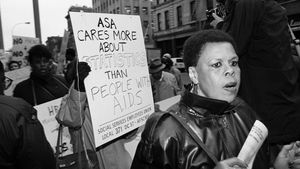








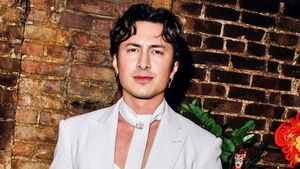
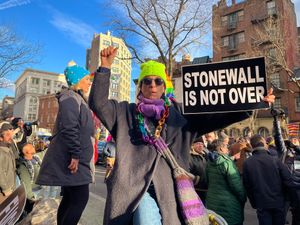
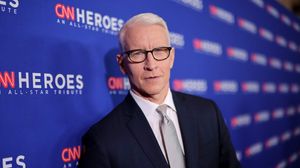

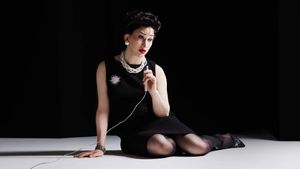

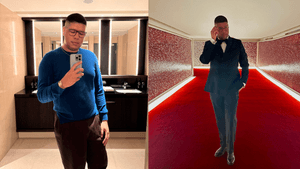




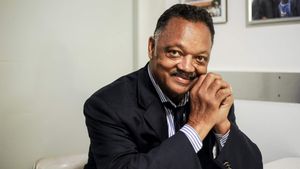





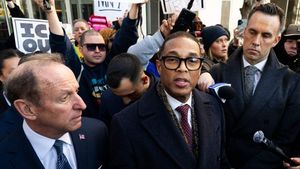












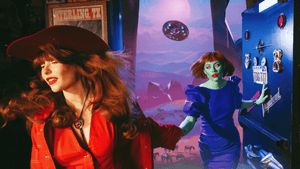





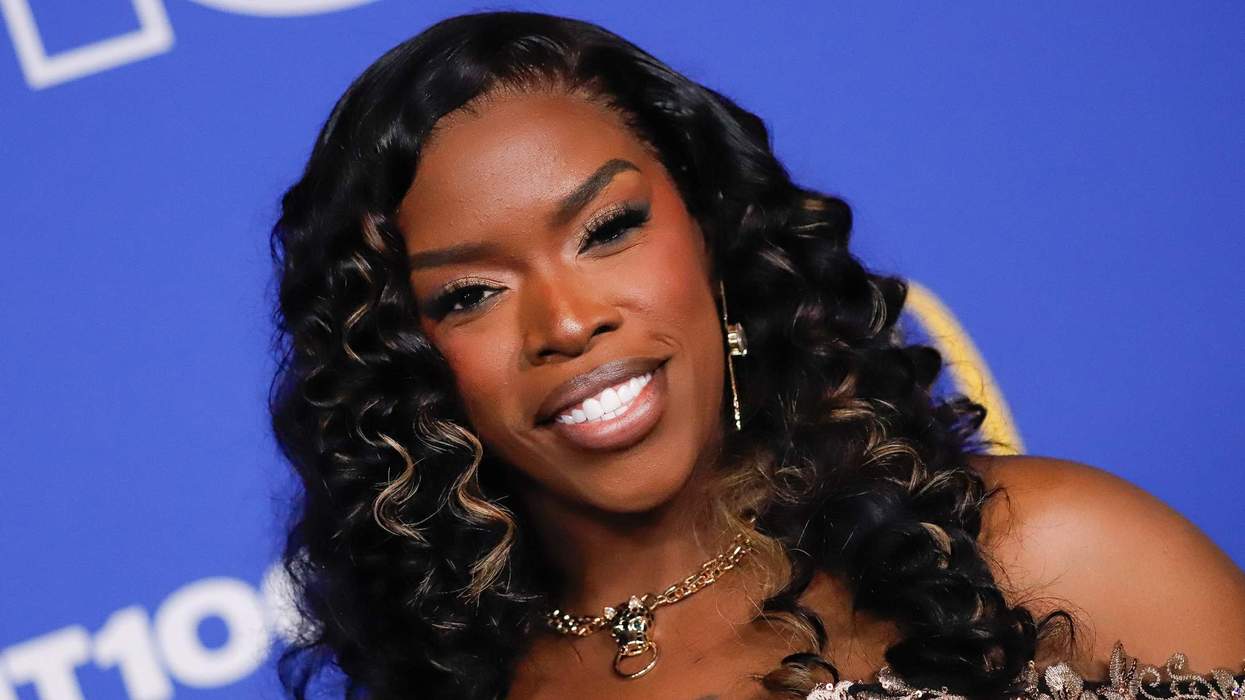


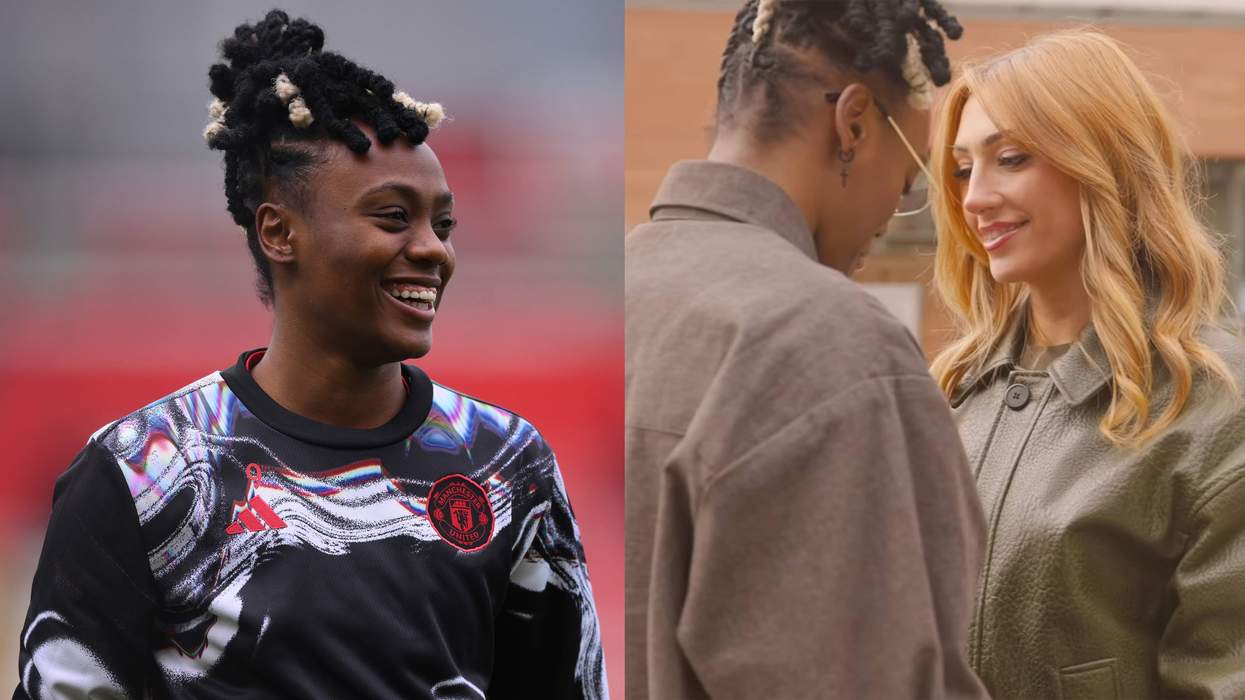

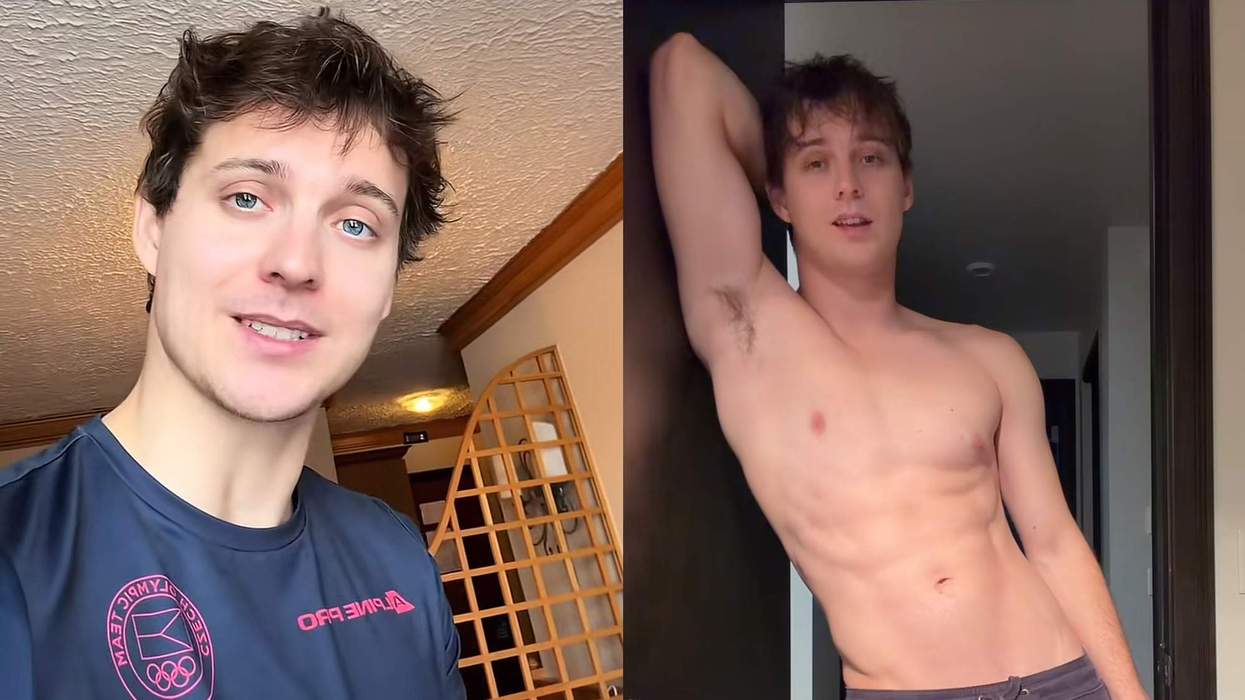


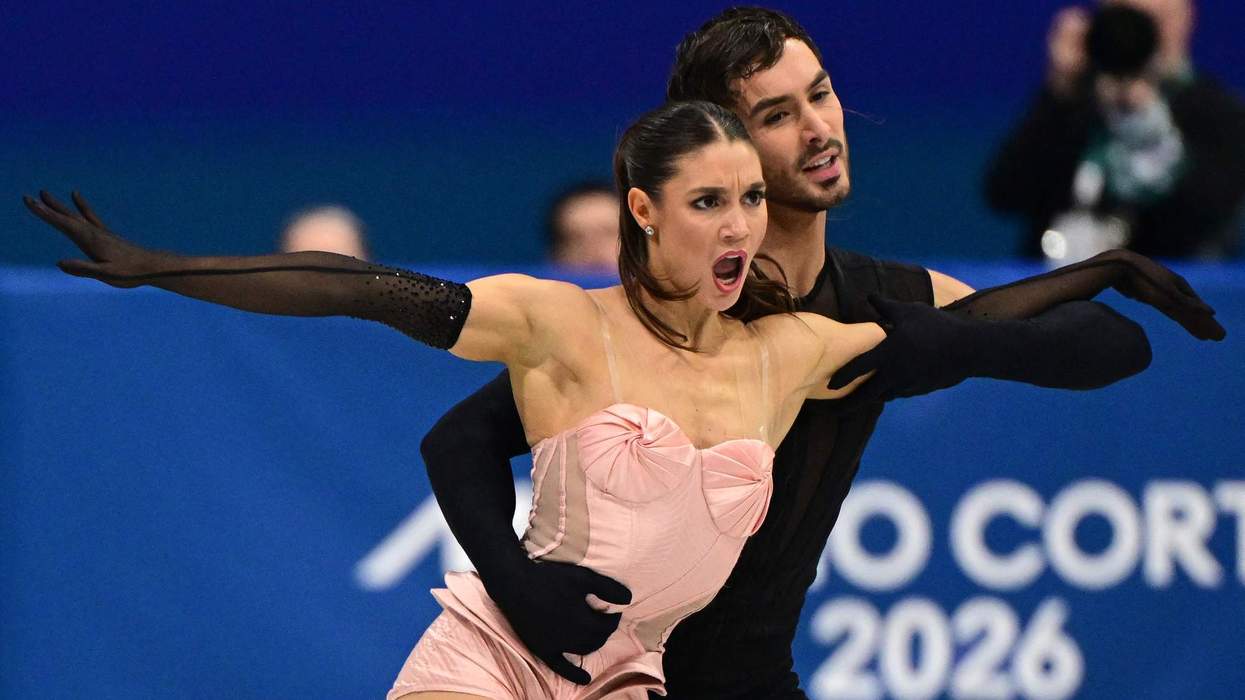
































 Cindy Ord/Getty Images
Cindy Ord/Getty Images























